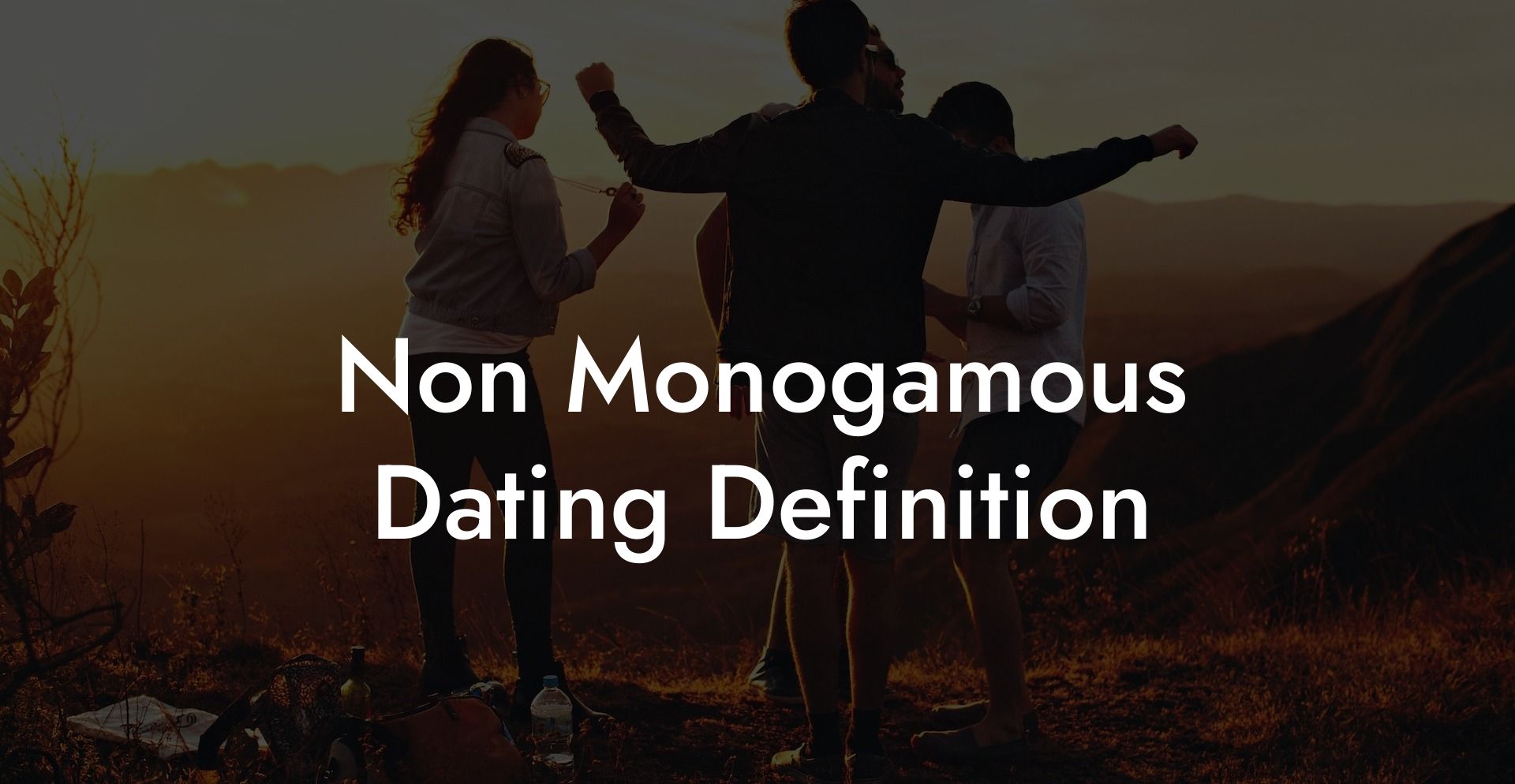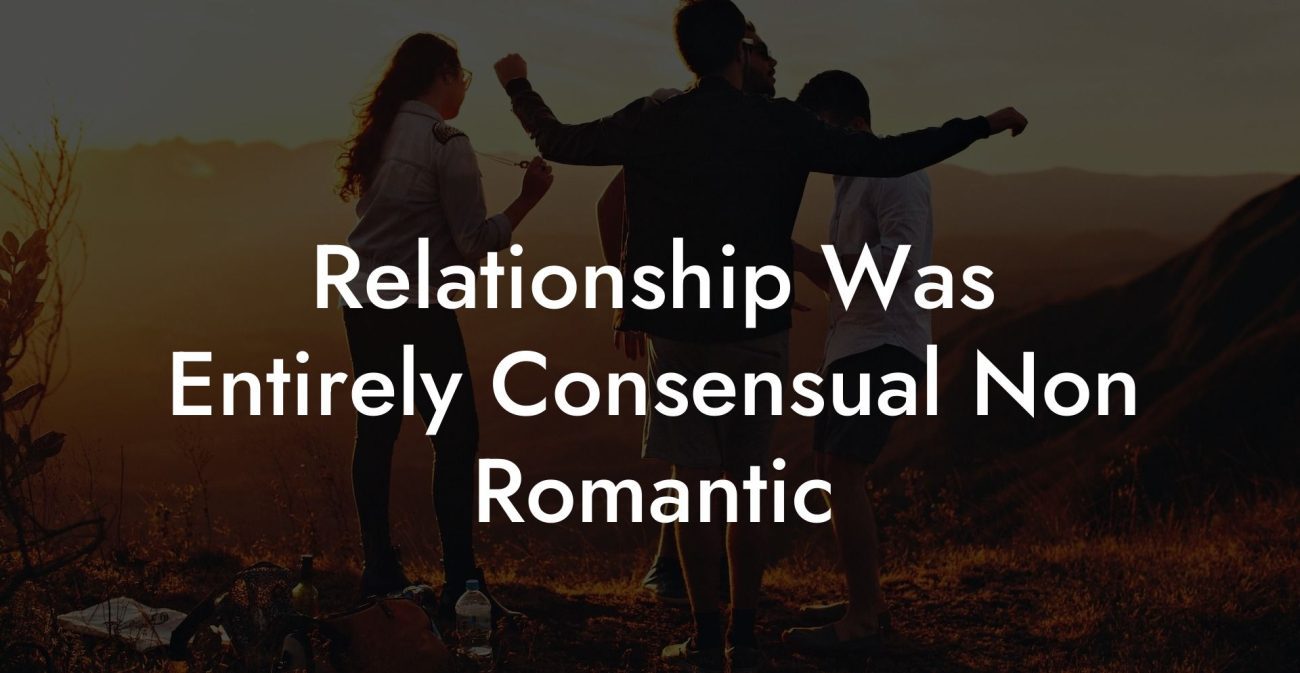Navigating the world of modern dating and relationships can be a challenging and sometimes confusing experience. With the rise of various relationship styles and preferences, the term "non-monogamous dating" has emerged as an increasingly popular choice for some individuals and couples. But what exactly does non-monogamous dating entail? In this comprehensive guide, we'll explore the definition of non-monogamous dating, the various types of non-monogamy, and how to approach this type of relationship style in a healthy and fulfilling manner.
Non Monogamous Dating Definition Table of Contents
What is Non-Monogamous Dating?
Non-monogamous dating, as the name suggests, is a relationship style that does not adhere to the traditional concept of monogamy, wherein two people are exclusive to each other, both physically and emotionally. Instead, non-monogamous dating allows for the possibility of multiple romantic and sexual relationships, either with the knowledge and consent of all parties involved, or without the limits of exclusivity.
Types of Non-Monogamy
Non-monogamous dating can take many forms. It's essential to understand the differences between these styles to make informed decisions about your relationships. Some common forms of non-monogamous dating include:
- Polyamory: The belief that individuals can maintain multiple substantial romantic relationships simultaneously, with the knowledge and consent of all involved parties. Polyamorous relationships can be structured in various ways, such as a closed or open triad or a relationship network with no defined hierarchy.
- Swinging: A form of non-monogamous dating where couples engage in sexual experiences with other partners, usually at designated events or clubs. Swingers typically prioritize their existing relationship and engage in casual sexual encounters for fun and excitement.
- Open Relationships: A style of non-monogamous dating where couples allow each other to pursue secondary relationships (sexual or emotional) outside their primary relationship, with established rules and boundaries.
- Relationship Anarchy: A radical approach to non-monogamous dating that does not prioritize or categorize romantic relationships above other connections like friendships. Relationship anarchists reject conventional labels and hierarchies while embracing the fluid and unique nature of all relationships.
Healthy Non-Monogamous Dating Practices
Embarking on a non-monogamous dating journey can be fulfilling and gratifying, but it's crucial to practice healthy relationship habits and maintain open communication. Some key points to keep in mind include:
- Consent and Communication: The foundation of any healthy non-monogamous relationship is open and honest communication, as well as the ongoing consent and understanding of all parties involved.
- Establish Boundaries: To navigate non-monogamous dating successfully, it's essential to set clear and specific boundaries, both individually and with your partners. This can involve discussing relationship expectations, emotional needs, and sexual safety.
- Respect and Trust: A non-monogamous relationship does not mean disregarding the feelings and needs of your partners. Trust and respect are vital components for fostering a positive relationship dynamic.
- Embrace Emotional Growth: Non-monogamous dating can often challenge societal norms and personal beliefs, leading to emotional growth and self-discovery. Embrace these changes and be willing to learn and grow from your experiences.
Non Monogamous Dating Definition Example:
Meet Alex and Taylor, a monogamous couple who has discussed the possibility of exploring non-monogamous dating. After researching the various types of non-monogamy, they both agree that they are interested in pursuing an open relationship. They sit down together to establish boundaries, such as being open about potential partners, prioritizing each other's feelings and needs, and discussing safe sex practices.
Over time, they experience the benefits of their open relationship, from enjoying new personal connections to appreciating each other more. Alex and Taylor maintain a trusting and loving relationship while also embracing their non-monogamous side. They create a solid foundation through ongoing communication, respect, and understanding.
Non-monogamous dating can be a fulfilling and rewarding experience, opening the doors to new connections and offering personal growth opportunities. By understanding the various types of non-monogamy and establishing healthy relationship practices, you can navigate this world with confidence and excitement. As with any relationship, ongoing communication, trust, and understanding are key components.
If you found this guide helpful, please feel free to share it with others exploring the world of non-monogamous dating and delve deeper into The Monogamy Experiment's library of comprehensive relationship guides.













